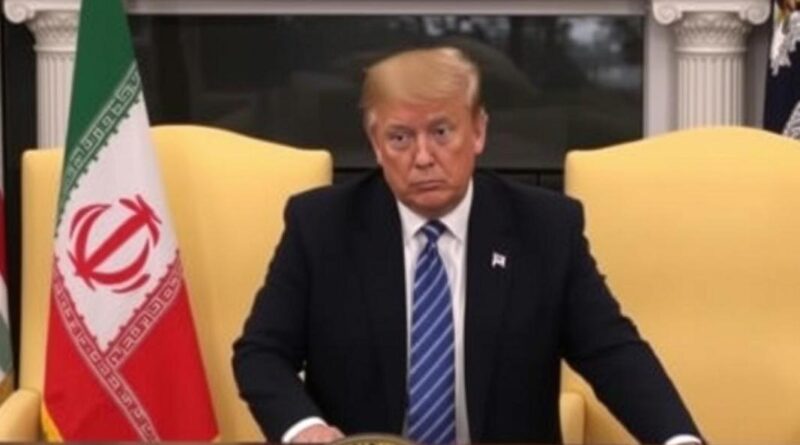Trump’s Peaceful Strategy: Rejecting Escalation with Iran
Trump’s Peaceful Strategy: Rejecting Escalation with Iran
The Israeli Proposal: A Deadly Course of Action
The recent revelation that former President Trump opposed an Israeli plan to assassinate Iran’s Supreme Leader highlights the complex and often perilous dynamics of Middle Eastern geopolitics. Such a drastic measure could have escalated the already tense relations not just between Israel and Iran but also entangled the United States in a broader conflict. By choosing diplomacy over violence, Trump appears to advocate for a more measured approach, recognizing that the stakes in this volatile region include not just national security but also the potential for widespread humanitarian crises.
A Vision for Peace: Trump’s Optimism
Trump’s assertion that he believes peace between Israel and Iran can be achieved soon reflects a surprising belief in diplomatic solutions framed against a backdrop of historical hostility. This optimism may stem from his past experiences in negotiations, suggesting that strategic dialogue could yield positive results in an area rife with animosity. However, this optimism must be tempered with the understanding that genuine peace requires more than just hope; it necessitates tangible commitments and trust-building efforts from both parties.
The Role of the United States in Middle Eastern Conflicts
The United States has long been a pivotal player in Middle Eastern affairs, and Trump’s decision to reject Israel’s aggressive strategy underscores the importance of U.S. influence in regional conflicts. The interplay between American foreign policy and Israeli military initiatives raises crucial questions about the extent to which the U.S. should support its allies, especially when proposed actions could lead to significant international backlash. America’s role in ensuring stability in this region invites scrutiny and demands a careful balancing act between supporting allies and promoting peace.
The Implications of This Decision on Israeli-Iranian Relations
Trump’s decision to shoot down the assassination plan opens the floor for new diplomatic endeavors between Israel and Iran, possibly leading to a new chapter in their fraught relationship. This move might signal to both nations that productive engagement is preferable to escalated hostilities. The prospect of dialogue could lead to negotiations on contentious issues like nuclear capabilities, terrorism, and regional influence, making it a pivotal moment for both countries and their leadership.
Conclusion: A Call for Diplomatic Engagement
Trump’s rejection of violence in favor of dialogue emphasizes the necessity for clear communication channels between historically adversarial nations. As tensions continue to simmer, the importance of diplomacy cannot be overstated; fostering understanding can lead to lasting peace. You can read more from the original source here. How can nations balance their security interests with the need for peaceful resolutions in such a tumultuous environment?

The Israeli Proposal: A Deadly Course of Action
A Vision for Peace: Trump’s Optimism
The Role of the United States in Middle Eastern Conflicts
The Implications of This Decision on Israeli-Iranian Relations
Conclusion: A Call for Diplomatic Engagement

